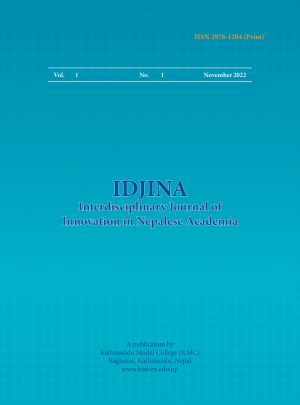Subversive Humanism in Manto’s Partition Fiction
Keywords:
irony, trauma, partition, violence, representation, humanismAbstract
Ironizing the violence to convey the political message about minority, Saadat Hasan Monto uses humanistic radical irony as a vehicle for political commentary by demystifying the politics of the representation of violence in official texts of both modern India and Pakistan. Partition affected every sector of human affairs badly. So, partition stories depict the irreplaceable loss displacement, dispossession, abduction, rape, painful death and other forms of violence that common people suffered from all three communities: Hindu, Sikh and Muslim. Manto counts the prime position who dealt with reality of the existing violence by showing it at various levels as familial, social, economic, political, religious others. In that course Manto also subverts the limited and biased notion of partition, which took partition of India as only the partition of territory and people. In the light of Hutcheon’s notion of ‘radical use of irony’, I argue that Manto’s use of irony in “Cold Meat” and “Open it” shows the utter cruelty of the people in power and authority at the time of partition violence and humanity shown by the marginalized section of society. His writing encapsulates his empathy for the victims and his belief in the essential goodness of humanity. The humanity that shines through in his writings about the down-trodden people living in the fringes of society, and the victims of partition violence of 1947 are an integral part of his stories.
Downloads
Downloads
Published
How to Cite
Issue
Section
License
Copyright (c) 2022 Kathmandu Model College

This work is licensed under a Creative Commons Attribution-NonCommercial-NoDerivatives 4.0 International License.
This license allows reusers to copy and distribute the material in any medium or format in unadapted form only, for noncommercial purposes only, and only so long as attribution is given to the creator.




